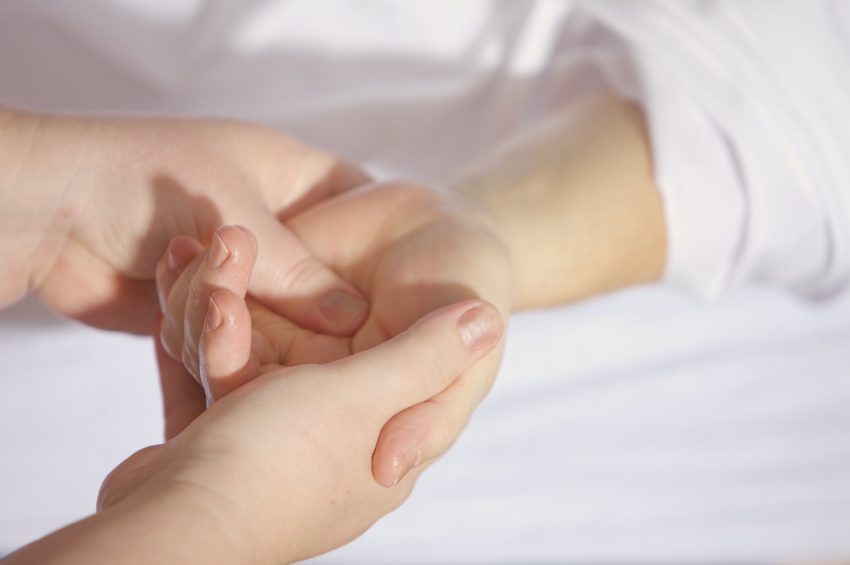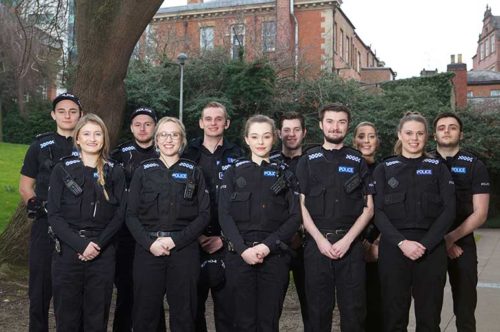Based at The USW Sport Park and aimed at students with an interest in working with sports and exercise injuries, this course will teach you to assess, diagnose, treat, rehabilitate, and prevent injuries to the musculoskeletal system.
As an accredited degree, graduates are entitled to full professional membership of the Society of Sports Therapists upon completion of the programme.
In addition to the BSc (Hons) degree, students can gain valuable experience working with individual athletes and sports teams at USW and with external placement providers.
Vocational awards such as Gym Instructor and Personal Trainer are also embedded in to the programme.
What you will study
Year 1
At level 4 you will start your clinical studies with basic pitch-side first aid, functional anatomy, introduction to clinical assessment, screening and soft tissue techniques. You will gain experience working with our university sports teams and through our popular sports massage clinic.
Introduction to Sports Therapy Assessment – 20 credits – Kate Louise Williams
This module will introduce students to the assessment of range of movement, manual muscle testing and palpation and to develop a working knowledge of musculoskeletal anatomy and pathology.
Sports Therapy a Patients Perspective – 20 credits – Kate Louise Williams
This module aims to introduce students to a patients perception of musculoskeletal injuries sustained in the sports and exercise environment and to develop empathetic practitioners, able to work as part of a multidisciplinary team
Exercise Physiology I – 20 credits – Philippa Laugharne
This module aims to familiarise the student with the language of anatomy and to specifically establish their knowledge and understanding of human musculo-skeletal anatomy, as an underpinning subject of exercise physiology and biomechanics.
Nutrition for Health and Exercise – 20 credits – George Rose
This module introduces students to the importance of diet for a healthy lifestyle, methods by which diets can be analysed and the principles of metabolism.
Exercise Prescription – 20 credits – Thomas Owens
This module will equip students with the knowledge and practical skills to plan, prepare, instruct and evaluate gym-based exercise programmes for a variety of different healthy populations. Completion of this module largely contributes to the award of the REP’s Level 2 Gym Instructor and Level 3 Personal Trainer qualifications.
Measurement and Evaluation of Human Performance – 20 credits – Adnan Haq
This module aims to introduce the student to the areas of measurement, data retrieval, analysis and interpretation, health and fitness assessment, and exercise prescription.
Year 2
At level 5 you will be taught to assess and diagnose injuries to the spine and peripheral joints, use a number of treatment methods to reduce pain and improve range of movement and function, and finally, by the end of your second year you will be competent in early to intermediate stage rehabilitation.
Rehabilitation of Sports and Exercise Injuries – 20 credits (optional) –Kate Louise Williams
This module will develop a student’s knowledge and understanding of the early and intermediate rehabilitation of common musculoskeletal injuries and illness sustained in the sports and exercise environment, such as; tissue mechanics and stress-strain curves; exercise selection and prescription.
Exercise Physiology – 20 credits- Adnan Haq
This module will consider the relationship between exercise and selected areas of the cardiovascular system. It will also allow you to develop an understanding of specific measurements in cardiovascular physiology and become competent in the performance of these measurements.
Research Methods – 20 credits- George Rose
This will build on the student’s understanding of research methods and broaden and deepen your appreciation of the range of approaches to research using research for both qualitative and quantitative methods.
Clinical Assessment of Musculoskeletal Injuries – 20 credits – Kate Louise Williams
The module will provide the student with an understanding of how to plan and complete a clinical assessment of peripheral and spinal joints and interpret the findings. Subjective assessment and subjective signposts for specific tissue behaviours, such as; Observations and quick touch; range of movement assessment, manual muscle testing, ligament stress testing and functional testing.
Treatment of Musculoskeletal Injuries – 20 credits – Kate Louise Williams
The module will introduce safe and appropriate treatment modalities for the management of musculoskeletal injuries. This will include, manual therapy for peripheral and spinal joint pathology; advanced soft tissue modalities, advanced neural techniques and manual therapy.
Exercise for Special Populations – 20 credits
This module will provide the student with an understanding of the physiological and medical issues associated with access to physical activity among special populations. The student will learn to design and evaluate appropriate exercise programmes that are suitable for individual needs among a diverse range of special population groups.
Muscle Function and Biomechanics (Optional)- 20 credits – Philippa Laugharne
The module will incorporate: Newton’s laws of motion with respect to angular kinematics and kinetics; the mechanics and energetics of walking and running. Furthermore, students will develop technical competence and analytical skills using Quintic Biomechanics software.
Year 3
In your final year, you will complete a dissertation in an area of your choice. You will also study a clinical placement module, late to pre-discharge rehabilitation and prevention module and sports trauma management. All of your clinical modules are joined with our BASES endorsed sport and exercise science modules such as exercise physiology and biomechanics at each year of study.
Dissertation – 20 credits – Stuart Jarvis
This will enable the student to design and conduct an independent study and to be able to critically evaluate scientific data and literature.
Professional Practice – 20 credits – Kate Louise Williams
This module will develop Graduate Sports Therapy skills into 200 hours of supervised clinical practice. Students will also appraise current strengths and weaknesses, develop a clear training needs analysis and career planning Training needs analysis, SWOT analysis, applying for roles, the interview process and maintaining clinical competence and the need for ongoing continuing professional development.
Sports Trauma Management -20 credits – Kate Louise Williams
This module will allow students to recognise and intervene in life threatening, potentially life threatening and limb threatening injuries sustained in the sports and exercise environment; such as-Advanced trauma life support, Airway manoeuvres, bleeding management, assessment of cervical spine injury, and emergency action planning.
Advanced Sports Rehabilitation – 20 credits – Kate Louise Williams
This module is designed to develop practical skills in late to pre-discharge rehabilitation, return to play decision making and injury reduction strategies and will focus on; prescribing speed, acceleration, change of direction and plyometric exercise; pre-rehabilitative and injury prevention exercises and physiological demands of individual and team sports.
Strength and Conditioning – 20 credits (optional) – Morgan Williams
The module will provide students with the underpinning scientific knowledge required to deliver effective strength and conditioning programs.
Exercise Physiology III (Optional)- 20 credits – Christopher Marley
This module will consider the relationship between exercise and selected areas of the cardiovascular system. It will also allow you to develop an understanding of specific measurements in cardiovascular physiology and become competent in the performance of these measurements.
Muscle Function and Biomechanics (Optional) – 20 credits – Philippa Laugharne
The module will incorporate: Newton’s laws of motion with respect to angular kinematics and kinetics; the mechanics and energetics of walking and running. Furthermore, students will develop technical competence and analytical skills using Quintic Biomechanics software.
Teaching
This course is very vocationally focused and so all of your clinical modules will have a heavy emphasis on practical sessions. These will take place in our dedicated clinical teaching rooms or in the state of the art sports facilities.
As a full time course students are expected to be in up to 20 hours of taught sessions per week, with plenty of time allocated to placements, practice and tutorials.
Support
Our students are supported in a number of ways, through a personal tutor, module tutors, the programme director and clinical supervisors. Clinical teaching staff have an open door policy for students seeking tutorial support. We also offer a peer mentoring system on the degree.
Your studies will be underpinned by the latest research undertaken by the University’s Sport, Health and Exercise Science Research Group which collaborates locally, nationally and internationally with partners from industry and academia to provide world-leading knowledge and impact. For you, this means you will be taught by academics who are at the forefront of their specialist field.
Assessment
As an accredited course students are required to demonstrate their clinical skills in practical examinations. In addition to the practical assessment, students will also complete another assessment such as a written examination, coursework, portfolio or presentation.
Zobacz więcej na stronie uniwersytetu >>
Wiza studencka do Wielkiej Brytanii
Aby studiować w Wielkiej Brytanii potrzebujesz wizy studenckiej. Aby złożyć wniosek o taką wizę studencką musisz zdjać certyfikat językowy na poziomie B2.
Uważaj! Do celów wizowych musisz wybrać wyłącznie egzamin w wesji Secure English Language Test (SELT) UKVI .
Co to jest test SELT UK VI registration? Przeczytaj więcej o testach SELT UKVI >>









